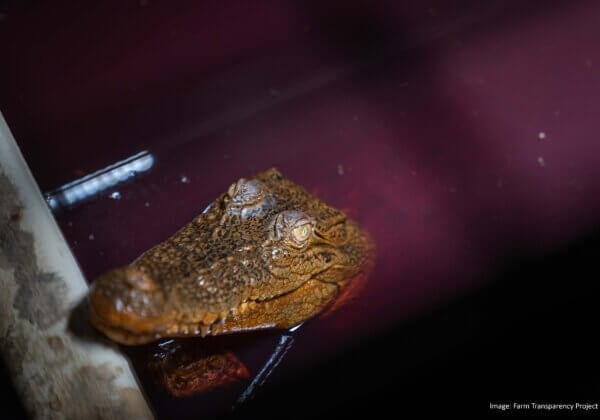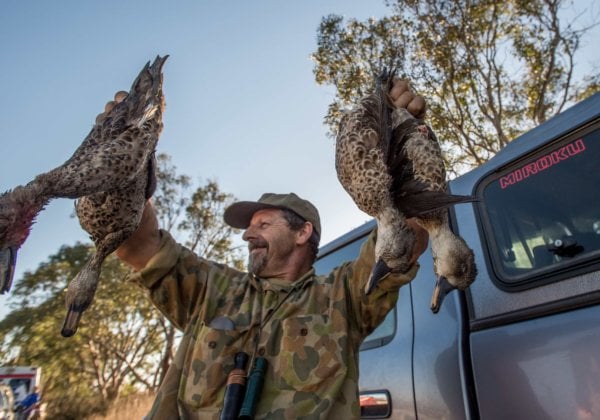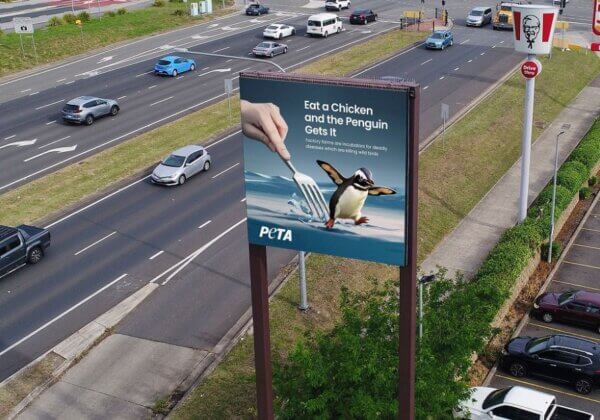Another Platypus Killed in a Yabby Trap in Queensland – Sign the Petition Now!
While reports surface of yet another platypus becoming entangled and drowning in a yabby trap in Broken River Bush Camp, near Mackay, it has become clear that Fisheries Queensland has a reporting problem, and it’s killing wildlife.
https://www.facebook.com/story.php?story_fbid=1743453905854514&id=371118329754752
Correspondence with Minister for Agricultural Industry Development and Fisheries Mark Furner has revealed that the government doesn’t consider traps like these to be an issue because there have been no “official” reports of drownings made to FishWatch – the government’s hotline for illegal fishing – in recent years, since regulations changed the openings of such traps to 5 cm in diameter certain areas.
However, this doesn’t mean that drownings aren’t occurring. In reality, it just means there’s a problem with reporting.
According to University of Queensland ecologist Tamielle Brunt, who researches platypus populations, juvenile platypuses and rakalis (or water rats) are still able to slip through 5-cm diameter spaces. When platypuses emerge from their nests, they have very sleek bodies and weigh only between 300 and 400 grams.
According to Wildlife Australia, trials have shown that platypuses couldn’t escape from a standard opera-house trap within six to 100 seconds and that 85% couldn’t find the exit in modified traps, including ones with an exit at the top.
Brunt has now collected seven reported deaths of air-breathing animals – including platypuses, rakalis, and eastern water dragons – in opera-house nets between 2016 and 2021 at various locations across Queensland.
Reporting Problem 1: No One Knows Whom to Report To
In some instances, these deaths were reported to the local council or water authority. Some were not reported to authorities at all.
These nets aren’t illegal in Queensland (that’s kind of the whole problem), so why would anyone know to report the drownings of platypuses and other animals to FishWatch?
Reporting Problem 2: Everyone is Confused by the Rules
While regulations stipulate that traps in certain areas – fresh waterways east of the Great Dividing Range – must have 5cm diameter entrances, traps with 7 – 10 cm entrances or lacking a ridged ring are still technically legal to use in fresh water impoundments such as dams.
Confusing right? And also not that helpful since wildlife are regularly seen in such waterways. In 2017, a rakali (water rat) was found dead in an opera-house net at Wivenhoe Dam.
Reporting Problem 3: No One Wants to Admit That They Killed a Platypus
It’s believed that less than 5% of the “by-catch” caught in these nets is reported.
While many of these traps are placed and simply forgotten until a concerned person finds a bloated, dead platypus floating inside them, others are retrieved by the fishers who had set them.
People who have killed platypuses and other species – even accidentally – are highly unlikely to report it.
Other traps also wash into waterways because they weren’t anchored properly.
It’s clear that a lack of reporting is making a bad situation worse for platypuses and other animals.
Platypuses Need a Ban Now
Platypuses are listed on the IUCN Red List as “near threatened”. A recent study from Queensland found that five out of 21 repeatedly sampled waterways that previous showed evidence of platypus presence no longer did, a result that researchers say “raises the concern that platypuses may no longer inhabit these waterways”.
It’s now well recognised that these traps result in the drowning deaths of platypuses and other wildlife, and the momentum to ban them nationally is strong. Opera-style traps have already been phased out in the Australian Capital Territory and Victoria, and New South Wales will begin phasing out their use on 30 April.
Such policies are effective, indicating just how dangerous these traps are to platypuses, rakalis, freshwater turtles, and aquatic birds. In the 18 months following the implementation of the Victorian ban, one platypus and two rakalis reportedly died in opera-house traps, compared to an average reported mortality rate of eight times as many platypuses and four times as many rakalis in the 36 months prior.
It’s time for Queensland to follow suit by banning these traps. Please sign our petition now:








